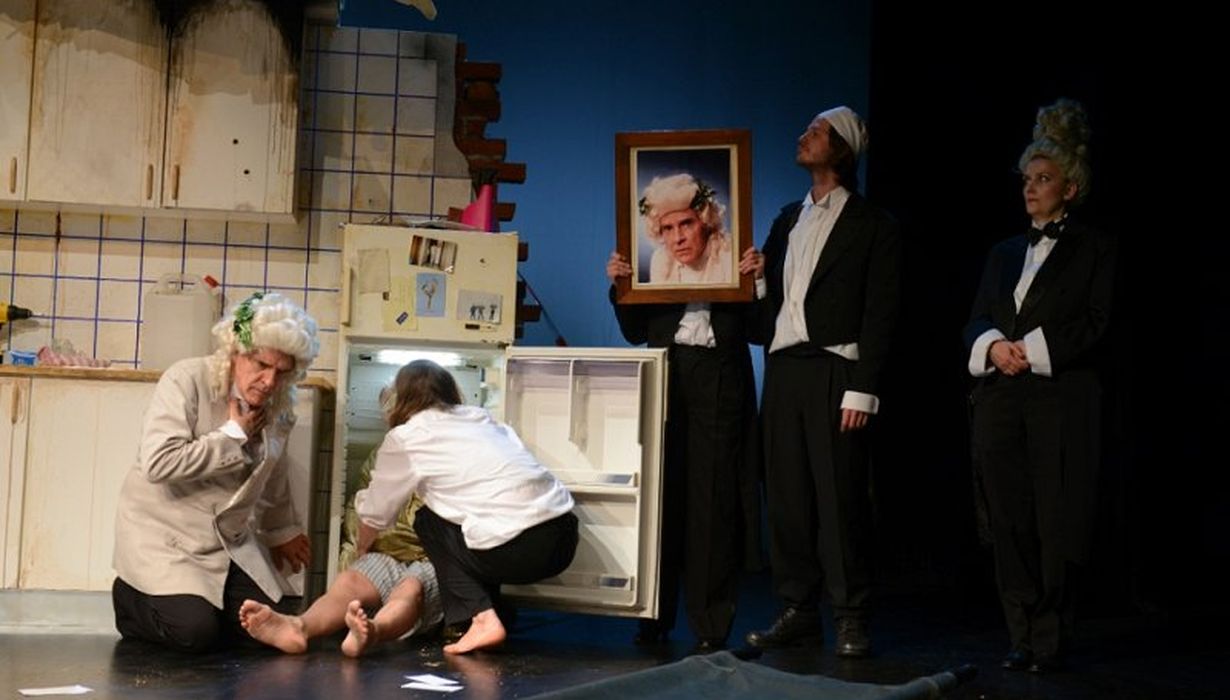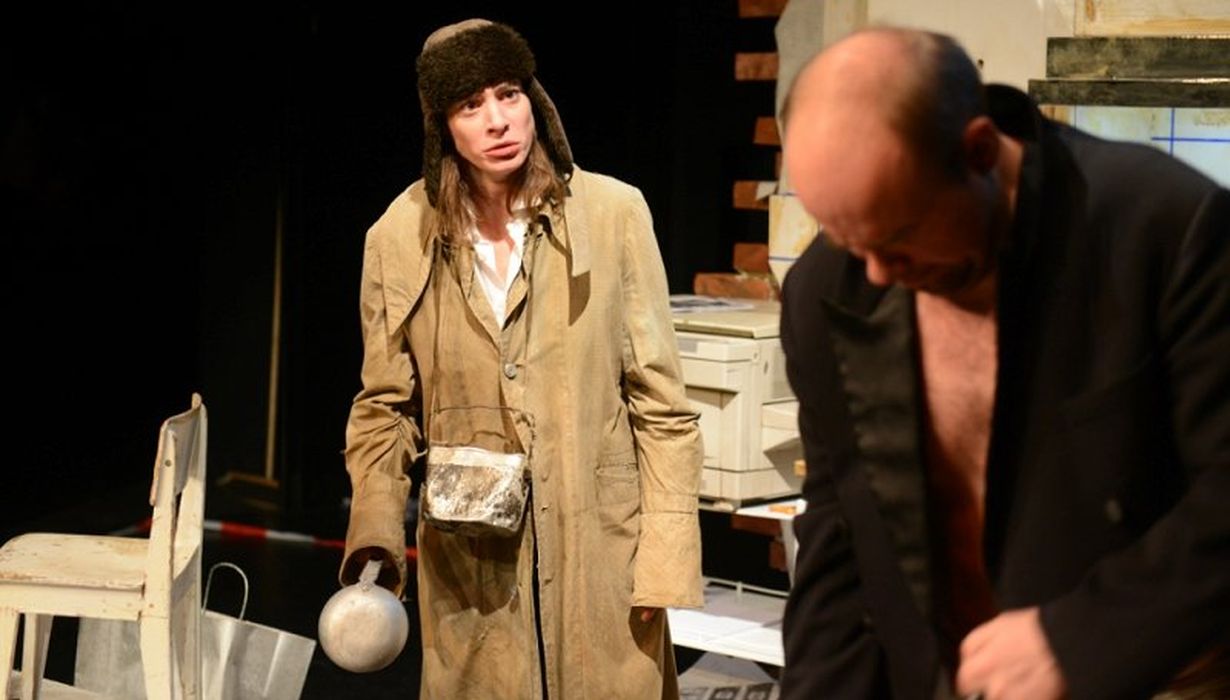PREMIERE
10. januar 2013
SNG Nova Gorica
11. januar 2013
SNG Nova Gorica
Chremylos, a poor elderly man, asked advice on how to raise his son from the oracle in Delphi. If he wants to become a wealthy may, is turning to crime and amorality really the only way? Gods advised him to follow the first person he meets on the way back from the temple. He chances upon Plutus, the god of wealth, who – being blind – cannot tell whether he brings luck to good or evil people. Chremylos is convinced he'll be able to restore Plutus’s sight and thus make honourable people happy, but soon a horrendously ugly woman, Poverty, appears and claims that without her, the world would be left without goods, services, culture, arts … and above all, without moral people, because she's the one who makes a person good.
The great comediographer asked an intriguing question in his last preserved work, a question revived today in modified versions: how would a utopian society where wealth were equally distributed among all people work? Wealth is an allegory, but also a sharp political satire on the social order in antiquity and the prevailing values of the time. The text of the “raw theatre” was adapted by directors Luka Martin Škof and Jaka Andrej Vojevec (this time in the role of a dramaturg). The adaptation links directness, nonchalance and uncompromising criticism of the ancient Greek comedy to today's social and political situation in which these elements are sorely missed. Greece, of the old and of today, thus opens into the space of mixed reality – into time “x”, “the compressed future past which essentially means now”.
Creators
-
Authors of Adaptation
Jaka Andrej Vojevec, Luka Martin Škof -
Director
Luka Martin Škof -
Dramaturg
Jaka Andrej Vojevec -
Language Consultant
Srečko Fišer -
Composer
Peter Harl -
Set and Costume Designer
Miha Knific -
Light Designer
Samo Oblokar
Performing
Cario
Gregor Zorc k. g.Chremylus
Milan VodopivecWealth
Žiga Saksida k. g.Blepsidemus
Miha NemecPoverty
Ana FacchiniChremylus' wife
Helena PeršuhChorus Leader
Peter HarlChorus
Branko Ličen, Medea Novak, Dušanka Ristić, Nevenka Vrančič
10. 1. 2013 at 20.00 SNG Nova Gorica.
11. 1. 2013 at 20.00 SNG Nova Gorica.
16. 1. 2013 at 20.00 SNG Nova Gorica.
18. 1. 2013 at 20.00 SNG Nova Gorica. - CANCELLED
23. 1. 2013 at 20.00 SNG Nova Gorica. - CANCELLED
25. 1. 2013 at 20.00 SNG Nova Gorica.
26. 1. 2013 at 20.00 SNG Nova Gorica.
21. 2. 2013 at 20.00 SNG Nova Gorica.
22. 2. 2013 at 20.00 SNG Nova Gorica.
23. 2. 2013 at 20.00 SNG Nova Gorica.
20. 3. 2013 at 20.00 SNG Nova Gorica. - CANCELLED
6. 4. 2013 at 20.00 SNG Nova Gorica.
11. 4. 2013 at 20.00 SNG Nova Gorica.
17. 4. 2013 at 20.00 SNG Nova Gorica.























